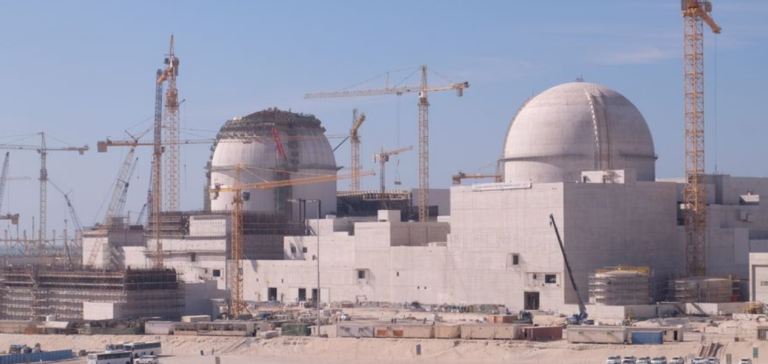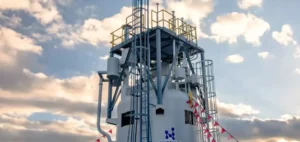The UAE’s Federal Nuclear Regulatory Authority (FANR) has announced a significant step forward in the country’s nuclear program, with the issuance of a license for the fourth unit of the Barakah nuclear power plant. Indeed, this decision is the result of a rigorous assessment, covering safety, security and safeguard aspects, and confirms the UAE’s commitment to international standards in the nuclear field.
A further step towards energy diversification and carbon neutrality
Construction of the unit, designed by Korea and named APR-1400, began in July 2015 in Abu Dhabi’s Al Dhafra region, three years after work began on the first Barakah unit. In addition, the first three units are now fully operational, under the regulatory supervision of the FANR. This step underlines the growing importance of nuclear power in the UAE’s energy strategy, aimed at diversifying its energy sources and supporting its long-term energy vision and carbon neutrality objectives.
The UAE’s nuclear program: A model for the region
The UAE launched its nuclear power program in 2008, with the government’s decision to build and operate a nuclear power plant to supply 25% of the country’s electricity needs. Construction of the first unit began in 2012, and Barakah 1 was connected to the grid in 2020. Hamad Al Kaabi, Permanent Representative of the UAE to the International Atomic Energy Agency and Vice-Chairman of the FANR Management Board, underlined the importance of this historic moment:
“It’s been 15 years since the UAE initiated its peaceful nuclear energy program, a first in the region.”
Training and certification of Emirati nuclear operators
FANR has certified 215 reactor operators and senior reactor operators, including 78 Emiratis, qualified to operate the nuclear power plant’s control rooms. In addition, Christer Viktorsson, Managing Director of the FANR, highlighted the success of the authority’s strategy to develop Emirati skills to regulate the nuclear sector and ensure its safe operation.
Nawah, the plant operator, can now begin the commissioning phase in preparation for commercial operation. During this phase, the FANR will carry out continuous, round-the-clock inspections at the site to verify that nuclear fuel loading and testing processes meet all regulatory requirements. Once the system is in commercial operation, the controller will assume a monitoring role. However, the Emirates Nuclear Energy Corporation (ENEC) owns the Barakah plant, which is operated by Nawah. The Barakah 4 operating license is valid for 60 years.
The approval of the Barakah 4 license represents a major step forward for the UAE’s nuclear program, underlining its commitment to international safety and non-proliferation standards.






















